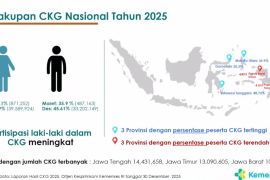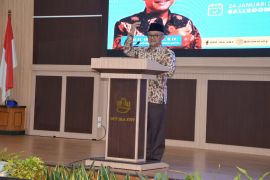- New IntroDia™ Survey patient data are presented at American Diabetes Association's® (ADA) 75th Scientific Sessions
- IntroDiaâ„¢ is an initiative of Boehringer Ingelheim and Lilly in partnership with the International Diabetes Federation
INGELHEIM, Germany and INDIANAPOLIS, Ind., June 9, 2015 (Antara/PRNewswire) -- New research shows that the quality of patient-physician communication, at the moment when additional oral type 2 diabetes (T2D) medication is prescribed ('add-on'), is linked to future patient self-care and well-being.1 Data from the IntroDiaâ„¢ Survey have quantitatively demonstrated this link in the largest international survey of its kind, using responses from 4,235 people with T2D across 26 countries.*1
The perceived quality of the 'add-on' conversation by patients was linked to all self-management outcomes surveyed.1 Patients who recalled better quality of communication when interacting with their physicians reported improved self-care and emotional well-being, including improved diabetes-related emotional distress, frequency of exercise and diet, as well as better medication adherence.1
Dr Matthew Capehorn, UK, GP and member of the IntroDiaâ„¢ Advisory Panel commented, "If not framed properly, the introduction of additional oral medication for type 2 diabetes management can be a challenging moment for patients. An encouraging conversation with a physician can make a real difference to subsequent self-management. We now have data that confirm how important the quality of communication is during this 'add-on' conversation."
Analysis of the conversations indicated patients distinguish three types of physician statements that contribute to communication quality: 'encouraging', 'collaborative' and 'discouraging'.1 When physicians used 'encouraging' and 'collaborative' statements, patients' perception of the communication quality significantly improved.1 Using 'discouraging' statements had the opposite effect.1
'Encouraging' communication included statements such as:
- "My doctor explained that the new medication would help to control my diabetes."
- "My doctor told me that the new medication would improve my quality of life."
'Collaborative' communication examples were:
- "My doctor invited me to ask questions about my new medication."
- "My doctor helped to adjust my treatment plan so I could do it in my daily life."
'Discouraging' communication included statements like:
- "My doctor told me that my diabetes is out of control."
- "My doctor told me that I needed more medication because I had failed to take good enough care of myself."
The analysis also looked into which statements were most frequently recalled by patients from their 'add-on' conversations. 'Encouraging' statements were recalled by up to 85 percent of patients. 'Discouraging' statements were recalled by up to 53 percent of patients.1
"The patient data demonstrate that physicians are already doing a good job, by most often using 'encouraging' and 'collaborative' statements and using 'discouraging' statements less frequently. However, 'add-on' conversations can still be further improved to help patients make the positive behavioural changes required to manage type 2 diabetes," concluded Dr Capehorn.
*4,235 people with T2D, out of the total 10,319 included in the IntroDiaâ„¢ Survey, met the necessary criteria to be asked about 'add-on' moment conversations. All 10,319 survey participants were asked about their early 'diagnosis' conversations.
CONTACT
Sungjin Kim
Head of Communications
Regional Operating Unit South East Asia and South Korea
Boehringer Ingelheim Singapore Pte.Ltd.
Office: +65-6419-7625
Email: Sungjin.kim@boehringer-ingelheim.com
Reference
1. Capehorn M, et al. Physician-patient Communication at Prescription of an Additional Oral Agent for Type 2 Diabetes (T2D): Link Between Key Conversation Elements, Physician Empathy and Patient Outcomes -- Insights From the Global IntroDia™ Study. Poster 63-LB at the 75th Scientific Sessions of the American Diabetes Association® (ADA) 2015, Boston, USA.
Reporter: PR Wire
Editor: PR Wire
Copyright © ANTARA 2015
![More Patients with Type 2 Diabetes Reach HbA[1c] Target with Apidra(R) on top of Lantus(R)](https://img.antaranews.com/cache/270x180/no-image.jpg)










